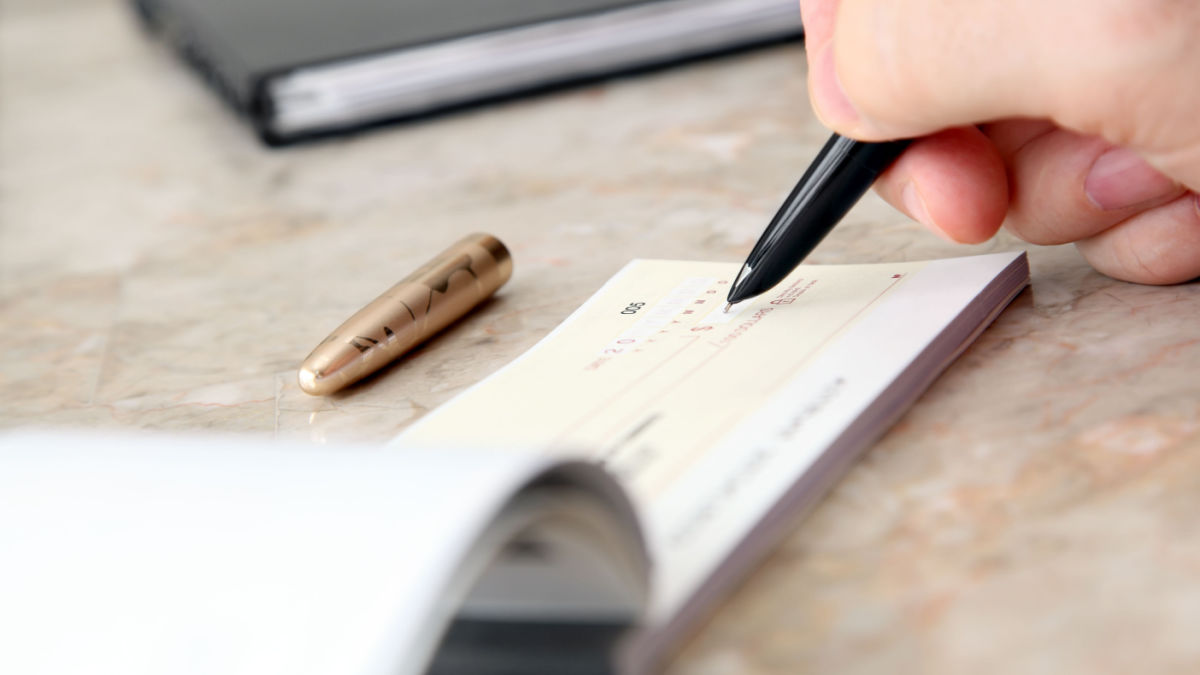The federal government’s official winding down of cheque usage is now underway, with a goal to end the use of cheques by 2030. If you’re one of the dwindling cohort of bill payers who still prefer to put pen to paper on your cheque book, instead of trusting monetary transfers to your computer keyboard, or device, the death knell of the cheque may be greeted with a kind of grief.
For many older Australians, writing cheques is a reminder of a bygone era in Australian banking. A time when there was a local bank branch in every neighbourhood and the tellers knew your name.
But with evidence that the use of cheques has fallen 90 per cent over the past decade and Treasurer Jim Chalmers’ assertion that “98 per cent of retail cheques could be serviced through internet or mobile banking and 100 per cent of those used in institutional and commercial settings”, the shift away from cheques has been a long time coming.
It used to be so different …
In the 1980s, cheques accounted for 85 per cent of all non-cash payments. But Australians have held on longer than many other countries, with Finland being less sentimental about cheque writing as far back as 1993. In Poland, cheques stopped being used in 2006.
Digital technology manages money faster, says Treasurer
Today, though, as online technology continues to change the way we interact with money, Dr Chalmers said a transition to digital will help “Australians get their money faster”.
In a speech to the Australian Banking Association in Sydney on 7 June, Dr Chalmers described the existing system as “clunky, inefficient and cumbersome to maintain”.
“Our regulatory frameworks and infrastructure have not kept up with the big trends and transitions happening in finance, especially when it comes to the digital economy and payments,” he said.
“Payments are the tracks on which our economy runs, which means that improvements here make everything move more efficiently, reducing costs for households and businesses, freeing up resources that can be used to grow the economy.”
For anyone still wedded to writing cheques, there is still time to write a few more.
“This transition will be gradual, coordinated and inclusive,” Dr Chalmers said of the announcement to modernise the way Australians can access money.
Public consultation about managing the transition, is slated to take place before the end of 2023 and will include all states and territories.
The decision is part of a broader strategic plan for Australia’s payments system, announced this week, with a roadmap that aims to modernise the country’s payment infrastructure for a sustainable and more efficient future.
The roadmap details five areas for reform, including:
- Resiliency and security of payment infrastructure, including reducing scams and boosting cybersecurity.
- Modernisation, including phasing out cheques and transitioning from the old clearing system to the new payments platform.
- Technology advancements including digital ID, consumer data rights, and an already announced consultation on AI.
- Piloting a central bank digital currency and becoming a leader in global payments through the G20 and the Pacific.
- Improving payment system transparency and collaboration between agencies, as well as consultation on the Reserve Bank’s mandate.
“Our vision is to create a modern, world class and efficient payments system that is safe, trusted, and accessible, and enables greater competition, innovation and productivity across the economy,” Dr Chalmers said.
Although the shift to digital payments is inevitable with the death of cheque writing, the government reinforced its commitment to enable Australians to access cash. It said support for banking at Australia Post offices would continue and that it planned to respond to a Senate inquiry on bank closures in December 2023.
How will the demise of the cheque book impact you or an older relative you know? When was the last time you wrote or received a cheque? Share your memories and experiences of cheques in the comments section below.
Read more: Bank closures continue despite demand for more support


Cheques – what are they? I’m 84 and haven’t used a cheque book for >25yrs. Everything is by internet payment or card swipes or now iphone swipe or ATMs. My sister in England was horrified that I didn’t uses cheques. She was scared to death of card fraud – so far it has never happened to me. I think my first bankcard and ATM use was in the late 1970’s or early 1980’s and that started the switch away from cheques.
David
Not just “iphone swipe” David. Any smart phone can be used for payments. I use my Samsung (Android) phone for that all the time now.
I am 92 years old and have used cheques for 75 years to pay my bills or get money out of my cheque account. My super is credited to my cheque account.
How will I get money out each payday or deposit cash if necessary?
I dont ever remember getting a tellers machine card on my cheque account when it was opened { 75 years ago } and I have never used a tellers machine.
Bit of a worry !!!!
Charles
Hi Charles, you ask, “How will I get money out each payday or deposit cash if necessary?”
You can do this at any post office using Bank at Post.
I have not used cheques for so many years now. However I am not convinced that totally digital is the way to go, when we have outages we cannot access anything that uses internet. Transferring money from one bank to another usually takes up to 3 working days, which can be a pain, like cheques which could take a week to clear. I still like to use cash, and always have cash on me.
Transferring from one bank to another is instant now with OSKO.
Cheques, like cash, will soon be a relic of the past.